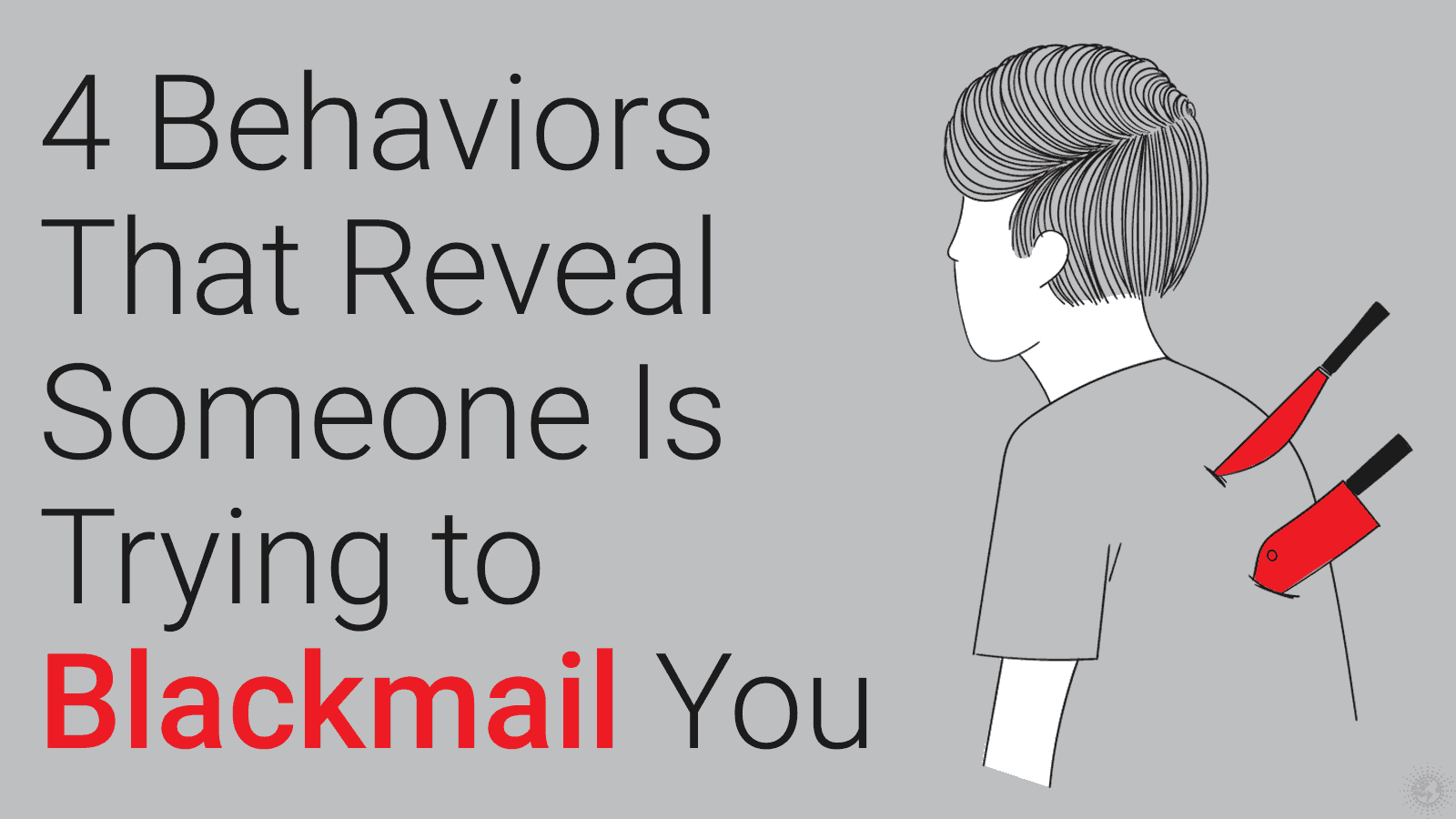“Emotional blackmail is the use of fear, obligation and guilt to control another person.” – Unknown
Everyone has secrets. Whether you have an embarrassing hobby or something happened that could ruin a career or relationship, your secrets are something you want to keep to yourself. So, what do you do if you think someone may be blackmailing you because they have information you want to be kept a secret? What about someone using this secret against you, to keep you doing as they ask? Or even threatening someone you care about if you don’t comply to their demands?
According to psychotherapist Dr. Susan Forward, blackmail is taking place when the extortioner brings three emotions into play: fear, obligation, and guilt. Dr. Forward also theorized that there are four types of blackmailers: the punisher, the self-punisher, the sufferer, and the tantalizer.
Blackmail, especially emotional blackmail, is frequently used by people with severe mental illnesses and abusers in violent relationships. It’s a technique comprised entirely of manipulation and is never the result of a healthy relationship. Keep an eye out for these behaviors in someone you believe may be trying to blackmail you.
Here Are 4 Behaviors That Reveal Someone Is Blackmailing You
1. The Sufferer, a.k.a. “Do this or I’ll be unhappy.”
The goal of this blackmailer is to get you to keep them happy, or they may “slip up” and let your secret be known. This manipulation is a tactic to keep you under their thumb and force you to do as they ask, lest they reveal what they know. They play into your fears and use them as threats, suggesting that if you don’t do as they say, they’ll follow through on whatever they’re threatening.
2. The Tantalizer, a.k.a. “Do this and I’ll do something for you.”
This blackmailer uses an incentive to keep you strung along. This could be a favor, a gift, or some other form of motivation. It could also be a tit-for-tat situation – such as keeping secrets under wraps for one another – or something more serious like a monetary gift in return for a promotion. Even though it may seem appealing to give in to this blackmailer, but you should step back from the situation and consider the potential fallout.
3. The Self-Punisher, a.k.a. “Do this or I hurt myself.”
The self-punishing blackmailer taps into your senses of guilt and obligation. Instead of asking for something in return, they’re threatening to take something away – themselves. This blackmail technique is frequently seen in abusive relationships of many kinds. Self-punishers may threaten to do something drastic if their demands aren’t met; they may suggest that they will end a relationship, harm themselves, or even try to commit suicide.
4. The Punisher, a.k.a. “Do this or I hurt you.”
This form of blackmail can be extremely dangerous. Armed with threats to hurt the person they’re blackmailing; their attacks could be either emotional or physical. Punishers use the fears of the person they’re blackmailing to their advantage. They may threaten to tell secrets, start rumors, steal, or physically harm you. At this stage, it may be wise to get someone else involved: someone you trust or an authority figure such as a teacher, boss, or police officer.
It may be difficult to stay positive or think positive thoughts throughout an ordeal like this, but it’s important not to let your fears get the better of you. Reacting with strong anxiety may just fuel the person blackmailing you and put you in a worse situation. Understand that this person is not treating you with respect and that nothing you have done deserves this treatment.
Try to get opinions from someone you trust about how to handle the situation. Sometimes, it may not be as bad as it seems for some secrets to come to light. Other times, the situation may be too much for you to handle on your own, and it may be advisable to go to the police.
Final thoughts
Serious blackmail threats are punishable by the law, especially when severe financial or social consequences may be involved. According to HG.org, you shouldn’t take serious blackmail threats into your own hands. It could result in harm to you or someone you care about.
Dealing with blackmail can be a stressful and emotional experience. Even when you feel you’re left with no options, do not believe the situation is hopeless. Believe in your ability to take action so that you, your secrets, and your loved ones are safe.
https://youtu.be/SyrXXH1hgf0

















